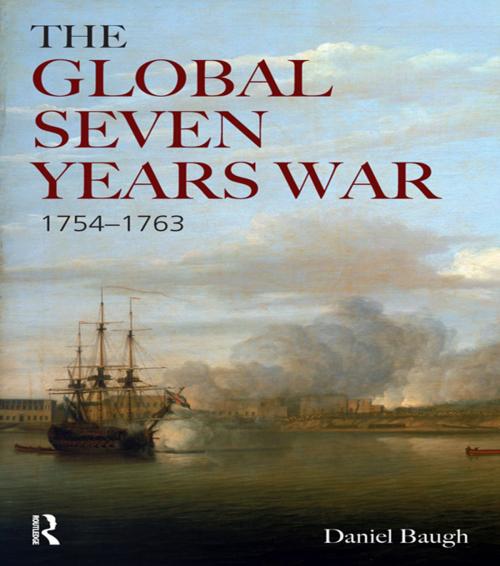| Author: | Daniel A. Baugh, Daniel Baugh | ISBN: | 9781317895459 |
| Publisher: | Taylor and Francis | Publication: | July 22, 2014 |
| Imprint: | Routledge | Language: | English |
| Author: | Daniel A. Baugh, Daniel Baugh |
| ISBN: | 9781317895459 |
| Publisher: | Taylor and Francis |
| Publication: | July 22, 2014 |
| Imprint: | Routledge |
| Language: | English |
The Seven Years War was a global contest between the two superpowers of eighteenth century Europe, France and Britain. Winston Churchill called it the first World War. Neither side could afford to lose advantage in any part of the world, and the decisive battles of the war ranged from Fort Duquesne in what is now Pittsburgh to Minorca in the Mediterranean, from Bengal to Quèbec. By its end British power in North America and India had been consolidated and the foundations of Empire laid, yet at the time both sides saw it primarily as a struggle for security, power and influence within Europe.
In this eagerly awaited study, Daniel Baugh, the worlds leading authority on eighteenth century maritime history looks at the war as it unfolded from the failure of Anglo-French negotiations over the Ohio territories in 1784 through the official declaration of war in 1756 to the treaty of Paris which formally ended hostilities between England and France in 1763. At each stage he examines the processes of decision-making on each side for what they can show us about the capabilities and efficiency of the two national governments and looks at what was involved not just in the military engagements themselves but in the complexities of sustaining campaigns so far from home.
With its panoramic scope and use of telling detail this definitive account will be essential reading for anyone with an interest in military history or the history of eighteenth century Europe.
The Seven Years War was a global contest between the two superpowers of eighteenth century Europe, France and Britain. Winston Churchill called it the first World War. Neither side could afford to lose advantage in any part of the world, and the decisive battles of the war ranged from Fort Duquesne in what is now Pittsburgh to Minorca in the Mediterranean, from Bengal to Quèbec. By its end British power in North America and India had been consolidated and the foundations of Empire laid, yet at the time both sides saw it primarily as a struggle for security, power and influence within Europe.
In this eagerly awaited study, Daniel Baugh, the worlds leading authority on eighteenth century maritime history looks at the war as it unfolded from the failure of Anglo-French negotiations over the Ohio territories in 1784 through the official declaration of war in 1756 to the treaty of Paris which formally ended hostilities between England and France in 1763. At each stage he examines the processes of decision-making on each side for what they can show us about the capabilities and efficiency of the two national governments and looks at what was involved not just in the military engagements themselves but in the complexities of sustaining campaigns so far from home.
With its panoramic scope and use of telling detail this definitive account will be essential reading for anyone with an interest in military history or the history of eighteenth century Europe.















